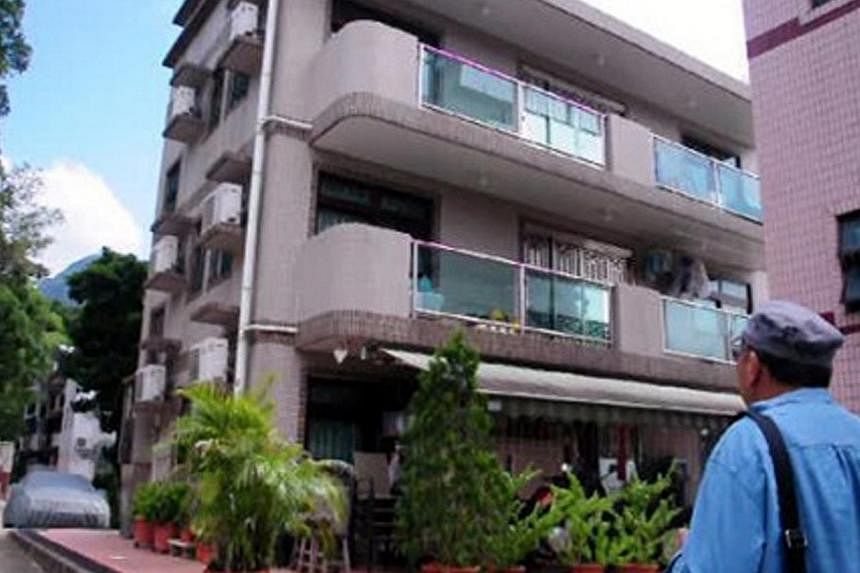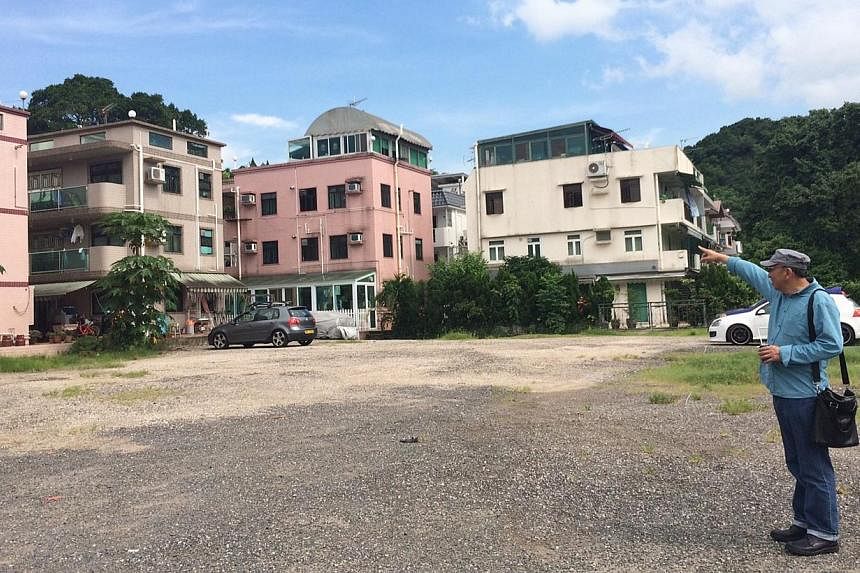In one of the most dramatic scenes during the Tiananmen demonstrations, three students knelt before the imposing doors of the Great Hall of the People, holding their Seven-Point Petition aloft.
One of them, Zhou Yongjun, was nabbed after the crackdown. Released in 1992, he decided to flee China.
Operation Yellow Bird swung into action.
From Beijing, Zhou took care to dodge the police and seek cover in safe houses, before a fishing trawler shipped him from Guangdong to Hong Kong.
There, waiting for him on the shores of Chai Wan, on the eastern end of Hong Kong Island, was a businessman, nicknamed Tiger.
But the fraught journey did not end there.
Hong Kong plainsclothes CID officers arrested the pair, suspecting the businessman of being a "snakehead" or people-smuggler, recounted Tiger, now 59 and a dried seafood trader who asked not to be named as he still does business in the mainland.
After he explained that Zhou was seeking political asylum, he was let off with a HK$200 fine.
It was one of the close shaves in a harrowing cat-and-mouse game that played out here for almost a decade.
Operation Yellow Bird, which began soon after the Tiananmen crackdown, brought together an unlikely alliance of Hong Kong's democracy fighters, triad members, film stars, businessmen, government officials, foreign diplomats and even sympathetic mainland police and soldiers.
Until the operation shut down ahead of Hong Kong's 1997 handover to China, it helped smuggle out some 400 activists, including high-profile student leaders such as Wu'er Kaixi, Chai Lin and Liu Gang, said Baptist minister Yiu Chu Ming, one of three men who spearheaded it.
In interviews with The Straits Times last month, those involved in the operation shared details of the high-adrenalin mission - the risks, the codewords, the disguises. They also had to contend with the mundane, the bloopers and long, dreary days just waiting it out.
Tiger, roped in as a ground operative because of his contacts, recounted how a mission to sneak out the wife of businessman Wan Runnan, who had supported the Tiananmen movement and fled earlier, nearly went awry.
"I went to Beijing to look for her. Her husband had told her, leave with this man who asks you: 'Please take me to eat Peking duck'."
But Madam Li Yu forgot the code. In the end, Tiger persuaded her to leave her guarded home and to go "shopping" with him.
Operation Yellow Bird took flight quickly amid the anguish Hong Kongers felt following June 4, said Rev Chu, now 70, a lanky, avuncular man who remains active in Hong Kong politics today as an organiser of the Occupy Central movement lobbying for universal suffrage.
On the evening of June 3, he was at a wedding dinner. A radio was blaring the tumult in Beijing as the military moved in on the students.
"I prayed and asked God, what can I do?"
He received a phone call a week later from filmmaker-actor John Shum, who asked him to join him and an unnamed businessman in setting up a network to help those who wanted to escape from mainland China. The network was a diversified one with different factions - some did not even know of each other's existence - working together.
A group of six Hong Kong University students called Por-zai, or Ball Boys, were in touch with the Beijiing students and transmitted requests for help from them.
Money was raised through the Hong Kong Alliance in Support of Patriotic Democratic Movements in China, with the late singer Anita Mui an enthusiastic supporter.
At one point, said Tiger, a tycoon donated four mobile phones - a rarity in those days - and free long-distance calls for ease of communication.
To avoid detection, different groups were roped in to run the risky operations on the ground.
Besides Tiger, who did it pro bono, another notable figure was businessman Chan Tat Ching, known as Brother Six. The services of Hong Kong's powerful triads, which had the muscle power and whose smuggling experience gave them the know-how in navigating sea routes to evade the police, were also enlisted. They were paid handsomely from HK$250,000 to HK$300,000 per person rescued, said Rev Chu.
On whether there were any scruples about working with the local gangs, he said: "We were not so rational in thinking through the moral issues. At that time, whoever could render help, we took it."
Meanwhile, he himself set to work within Hong Kong. "I spoke to the Hong Kong government, how do we turn these fugitives from illegal to legal?"
To tackle the issue, a team from Britain's Foreign Affairs Ministry seconded as political advisers to the governor, took charge, working out of a temporary office in Central's Garden Road. It issued temporary staying permits to those who arrive.
A list of the dissidents was then sent to the various foreign consulates. France took in people like Wu'er, who was No. 2 on China's most wanted list, as did Scandinavian countries like Norway, Denmark and Finland.
While waiting for the process to run its course, the escapees had to be secretly housed in Hong Kong. While some high-profile members were quickly relocated, others had to wait years for their turn.
Village homes located in the countryside in the New Territories were rented. Tiger, who helped source for some of them, also took care of the fugitives' needs, from tending to their skin allergies - many of the northerners were not used to Hong Kong's humidity - to keeping their spirits up with beach excursions and various other activities.
One student, he recalled, had post-traumatic stress disorder and could not stop crying. A psychologist had to be called in.
The early years after 1989 were especially tough for the operation, say those in the know. Beijing was determined to nab the students leaders - and succeeded in many cases. Even then though, there were sympathetic individuals among China's police and military who helped by turning a blind eye, said Rev Chu.
But the tension eased off after a few years. One conjecture was that after 1992, as then strongman Deng Xiaopeng gained confidence in the wake of his southern tour to drum up support for economic reforms, Beijing saw the benefits of sending the dissidents into exile overseas, rather than run the risk of having them create more trouble at home.
The irony, acknowledged Rev Chu, is that many of those who fought so hard to escape China, now dream of going home.
"They had hoped that China would change, and thought they could return home quietly soon. But the regime had become even stronger."
In 2009, he started a "Going Home" campaign to lobby the central authorities to allow them to return, but to no avail. As he admits, it will not be possible, or desirable, to guarantee that they will not continue to take up the cudgels against the party once they are back in China.
Looking back, those involved say they have no regrets despite the dangers. For years, Rev Chu, for instance, avoided the western coastline of the Hong Kong island where vessels from China often docked. "I was told not to walk around there in case I got pulled into a boat and kidnapped," he said with a chuckle.
Said Tiger: "I am just an ordinary businessman, and I never thought I would be sitting here, being interviewed like this.
"But even if I didn't do it, other Hong Kongers would have."




